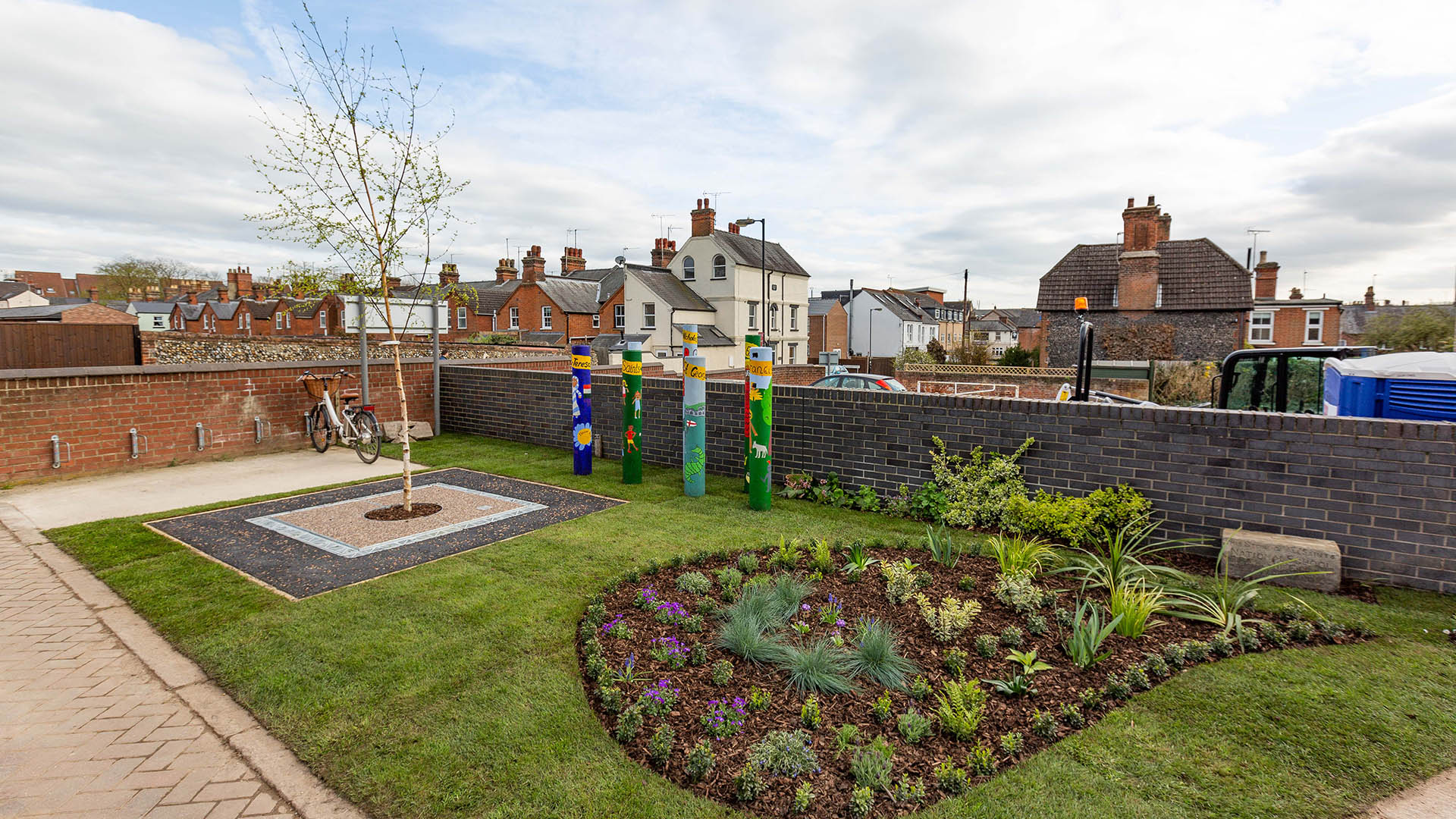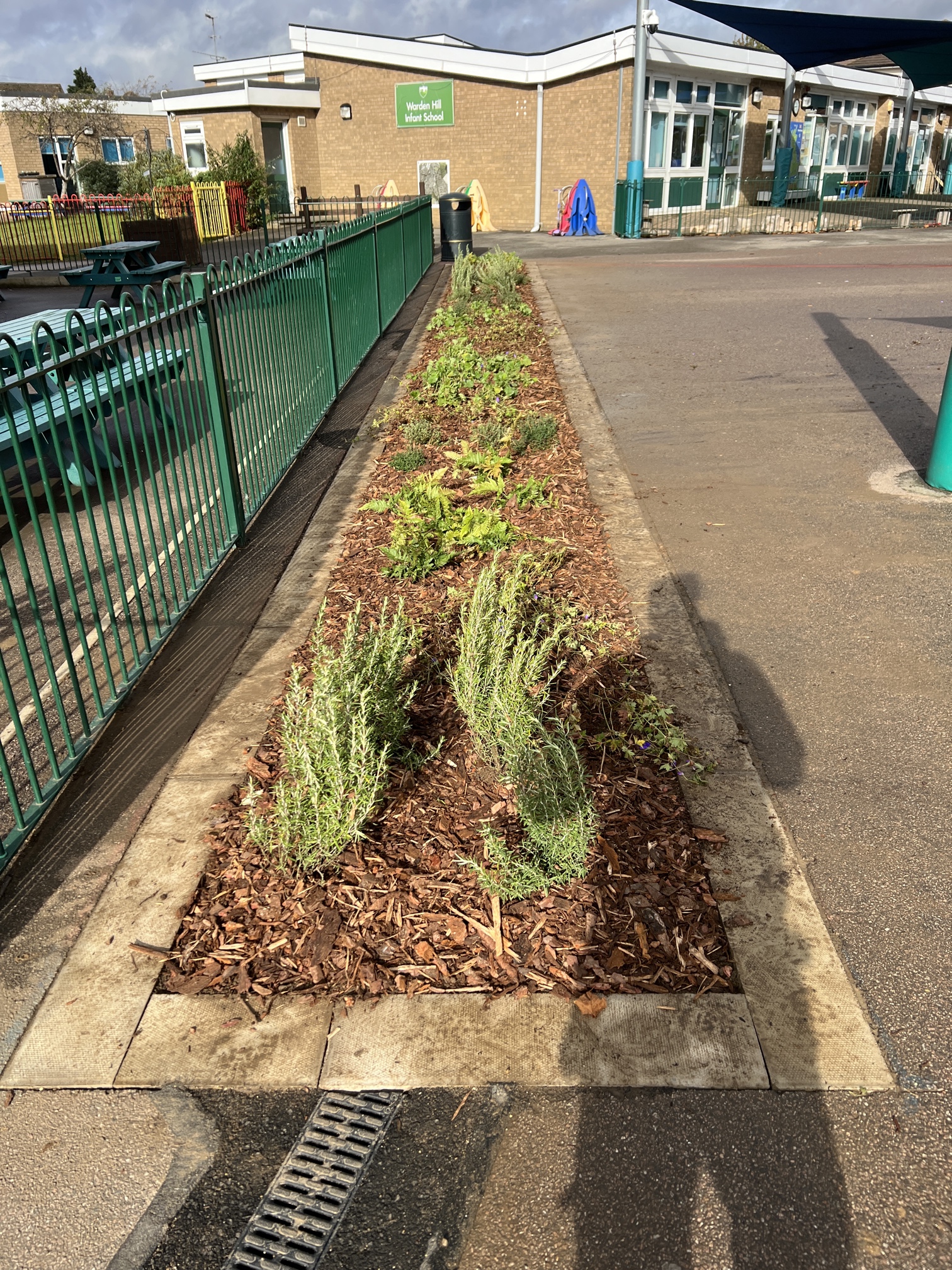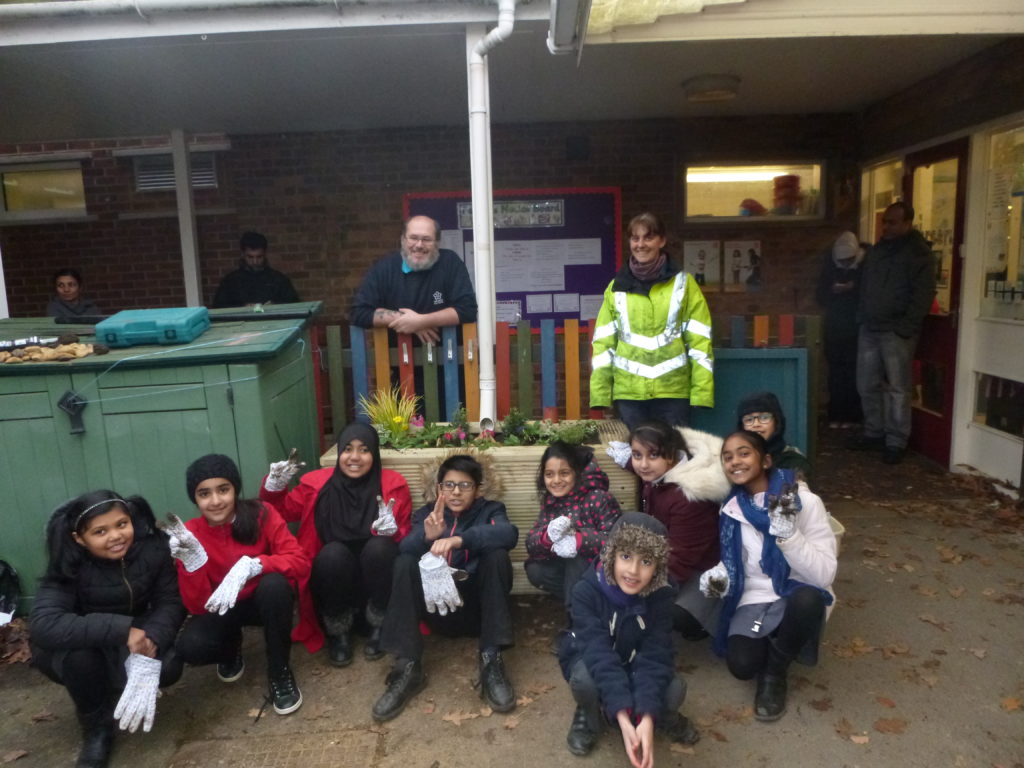Sustainable Drainage Systems (SuDS) offer a remarkable opportunity not only to manage surface water but also to educate and engage students in the importance of environmental stewardship. By integrating SuDS into school environments, we not only mitigate flooding risks but also create dynamic learning spaces that promote health, well-being, and environmental consciousness. In this blog, we’ll explore how SuDS, coupled with engaging educational approaches, can transform schools into vibrant ecosystems that benefit everyone involved.
Incorporating SuDS into school environments can transform traditional playgrounds into dynamic learning spaces that promote environmental awareness, health, and well-being. One of the key principles behind SuDS in schools is making the learning experience enjoyable and engaging for students. By integrating fun and interactive elements such as ArborFlow Tree pits, rain gardens, and above-ground planters, schools can enhance the educational value of SuDS while providing a multitude of benefits for students and staff alike.

All Saints School, Newmarket
By incorporating GreenBlue ArborFlow Tree pits into school grounds, students can learn about the importance of urban green spaces, biodiversity, and the role of trees in mitigating climate change. Additionally, these green spaces can serve as outdoor classrooms where students can engage in hands-on learning activities such as planting, watering, and observing plant growth.
Rain Gardens: Learning Through Water Management
Rain gardens are an excellent example of how SuDS can be integrated into school environments to promote sustainability and biodiversity. These innovative features not only capture and absorb rainwater but also provide habitat for native plants and wildlife. Designed to capture and absorb rainwater, reducing runoff and preventing pollution of waterways. Students can learn about the water cycle, stormwater management, and the importance of water conservation. They can also participate in activities such as designing, planting, and maintaining the rain gardens, fostering a sense of ownership and stewardship of the environment.

Warden Hill School, Luton
Above-Ground Planters: Growing Sustainable Minds
Above-ground planters are versatile SuDS features that can be easily integrated to provide additional opportunities for learning and engagement. These planters can capture, attenuate and store rainwater, allowing students to observe the effects of precipitation on plant growth and soil moisture. By incorporating above-ground planters into outdoor learning spaces, schools can create hands-on opportunities for students to learn about gardening, food production, and the interconnectedness of ecosystems. Additionally, these planters can serve as living laboratories where students can conduct experiments and investigations related to soil health, plant biology, and environmental science.

Rainscape Project
Benefits for Health and Well-being: A Holistic Approach to Education
In addition to providing valuable educational opportunities, SuDS in schools offer numerous benefits for the health and well-being of students, staff, and the wider community. Green spaces such as Tree pits, rain gardens, and above-ground planters can improve air quality, reduce noise pollution, and provide opportunities for physical activity and outdoor recreation. Research has also shown that access to nature and green spaces can have positive effects on mental health, concentration, and academic performance. By incorporating SuDS into school environments, we can create healthier, happier, and more resilient communities for generations to come.

